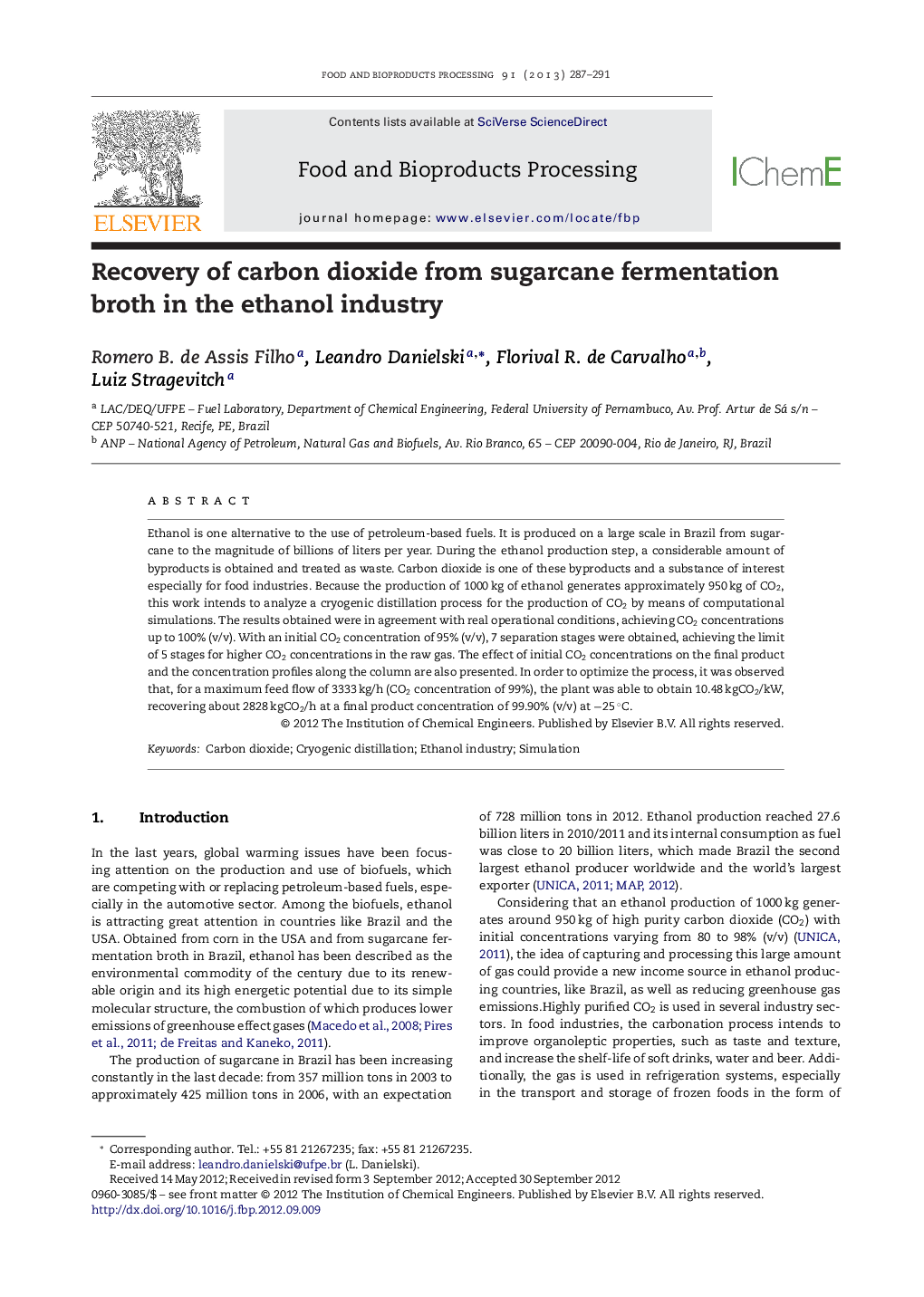| Article ID | Journal | Published Year | Pages | File Type |
|---|---|---|---|---|
| 19252 | Food and Bioproducts Processing | 2013 | 5 Pages |
Ethanol is one alternative to the use of petroleum-based fuels. It is produced on a large scale in Brazil from sugarcane to the magnitude of billions of liters per year. During the ethanol production step, a considerable amount of byproducts is obtained and treated as waste. Carbon dioxide is one of these byproducts and a substance of interest especially for food industries. Because the production of 1000 kg of ethanol generates approximately 950 kg of CO2, this work intends to analyze a cryogenic distillation process for the production of CO2 by means of computational simulations. The results obtained were in agreement with real operational conditions, achieving CO2 concentrations up to 100% (v/v). With an initial CO2 concentration of 95% (v/v), 7 separation stages were obtained, achieving the limit of 5 stages for higher CO2 concentrations in the raw gas. The effect of initial CO2 concentrations on the final product and the concentration profiles along the column are also presented. In order to optimize the process, it was observed that, for a maximum feed flow of 3333 kg/h (CO2 concentration of 99%), the plant was able to obtain 10.48 kgCO2/kW, recovering about 2828 kgCO2/h at a final product concentration of 99.90% (v/v) at −25 °C.
► CO2 recovery from the ethanol production was evaluated by computational simulations. ► The input operational data were obtained from a local producer. ► Effects of different operational parameters in the product stream were evaluated. ► CO2 final concentrations up to 100% (v/v) could be obtained.
